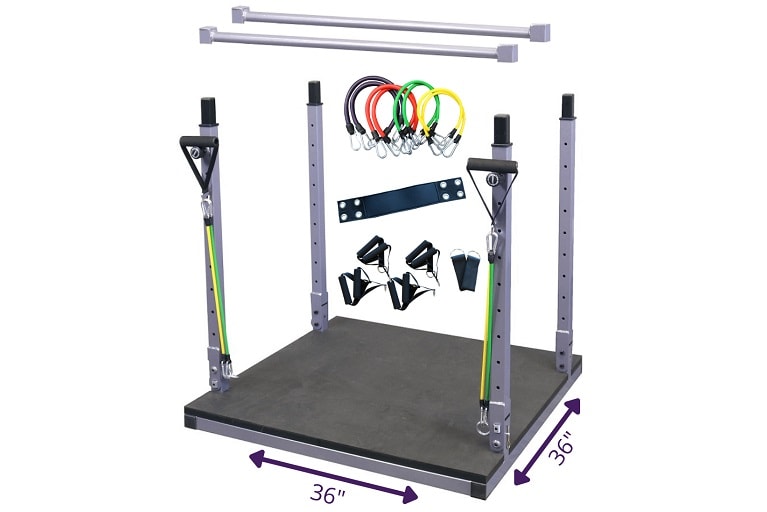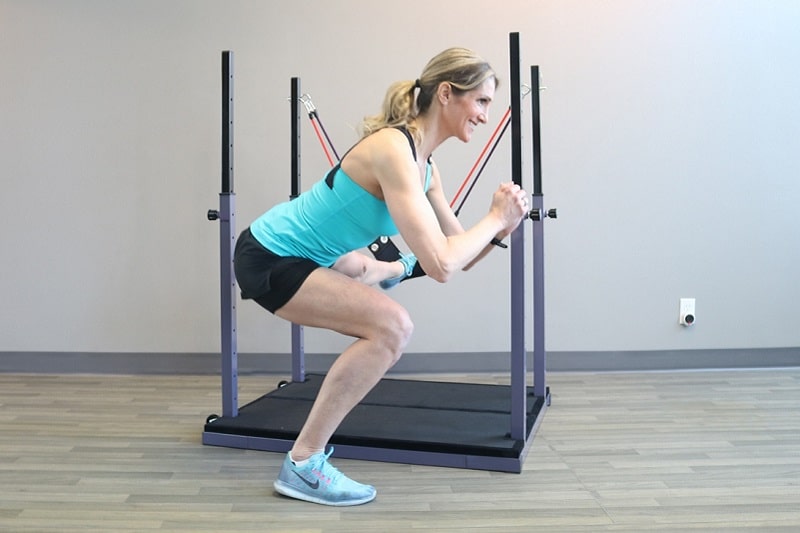
The Evolution for Physiotherapists and Other Professionals
by: Admin

When the Evolution was first created, it was done so to give everyone a sustainable exercise option.
Our mission sums it up: to make exercise convenient, inclusive, and accessible regardless of experience, skill, and ability. Since then, we have realized that we can do more than just help those who want to exercise at home. Given its compact and versatile nature, it has since been introduced to the physiotherapy and adaptive exercises spaces.
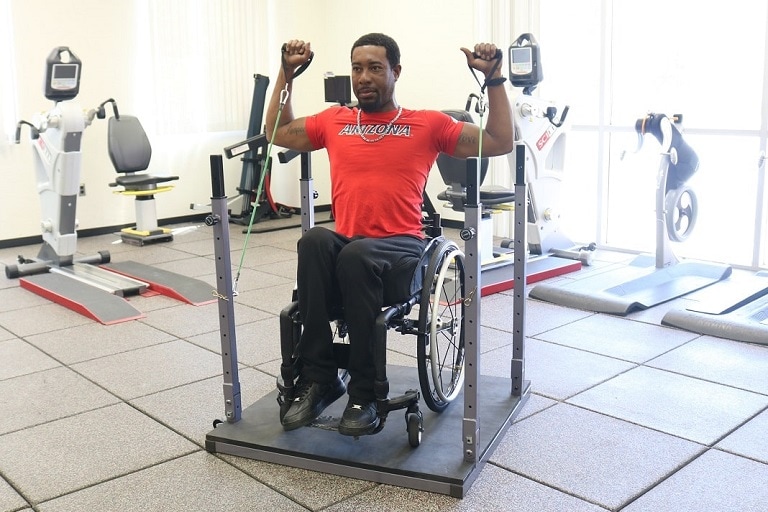
Today, efficiency is top of mind and for business owners, this means efficiency of cost and efficiency of space. Physiotherapists and other practitioners are not precluded from this. In fact, they are largely affected by this environment of rising operating costs. To respond, some are maximizing the space they have, some are downsizing, and some are shifting to an in-home practice.
As part of a comprehensive service to their clients, they must have exercise equipment. Unfortunately, traditional exercise equipment presents a problem.
Traditional equipment tends to fall into one of two categories:
It is also worth noting that exercise in a rehab setting is much different than in a general exercise setting; how resistance is applied needs to be very specific. Where general exercise is primarily about strength and endurance, rehab is primarily about repair, restoration, and refinement of function, movement, and motor skills; areas where all the minute details matter.
To rehabilitate an injury, physiotherapists often have their clients exercise joints in a very specific position and angle of movement. This is not possible with weights because they only apply resistance in one plane of motion, vertical.
This is why you will often find resistance bands and cable machines in physiotherapy clinics. They are perfect for physiotherapy because of the way they can be used to apply a smooth resistance to any movement and from any angle.
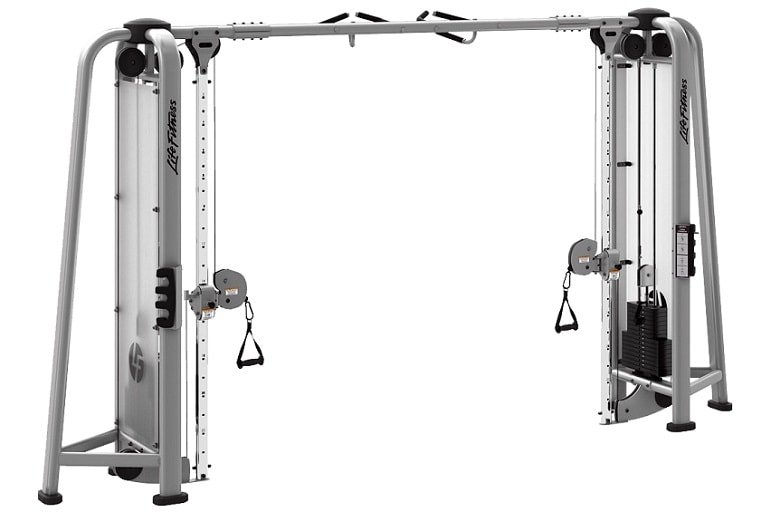
Where resistance bands set themselves apart from cable machines is that they can deliver an elastic resistance which through which it increases and decreases evenly, concentrically and eccentrically. This elastic resistance yields a strength curve similar to human strength curves. The potential of resistance bands are discussed in more detail here.
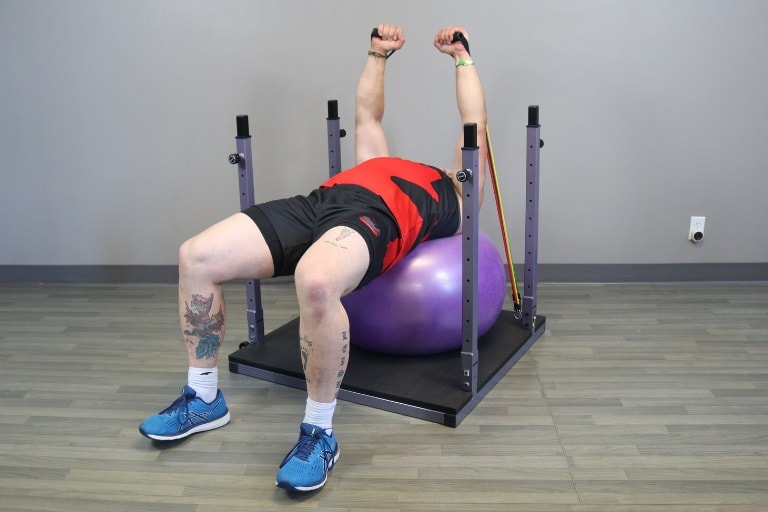
So, physiotherapists already have viable options when it comes to exercise equipment. What's the problem?
Let's dive a little deeper into the issue suggested above: traditional exercise equipment fall into one of two categories.
Category 1: versatile but large, heavy, and expensive.
Cable machines are the perfect example of this. Being able to modify the amount of load (resistance) quickly by moving a pin is an awesome feature. Additionally, the ability to change the height and therefore, the angle of resistance is particularly important in physiotherapy applications for reasons mentioned above. Cable machines are extremely versatile.
However, with the good, comes the bad. Cable machines require a large footprint and weigh hundreds of pounds. They require a dedicated space and should be considered a permanent fixture. This is before you consider the cost. A cable machine can cost $2,500 and require much maintenance.
Not every clinic can accommodate the size, weight, and cost of a cable machine.
Category 2: compact, light, and low-cost but very limited in its function.
On the other end of the spectrum are resistance bands.
Despite all of the glowing advantages of resistance bands (mentioned above), there are disadvantages. Standalone resistance bands have limitations, not the least of which is their need to be tethered to something fixed. This leaves physiotherapists at the mercy of whatever happens to be within the vicinity. We have seen bands tied to table legs, doorknobs, and other equipment. Not only is this impractical, it is also less safe. And, when resistance bands need to be tethered to other objects, the optionality of angles is very limited.
Physiotherapists can benefit from more functionality out of resistance bands.
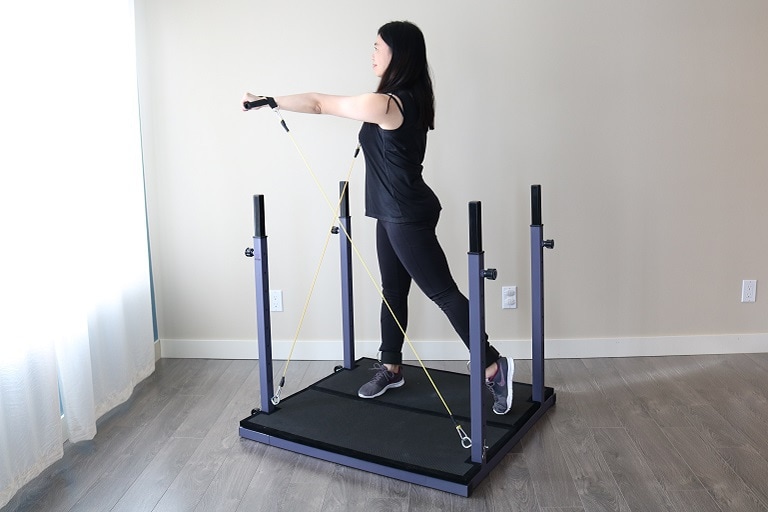
The Evolution is the best of both worlds. It is versatile while also compact, lightweight, and mobile.
Its sturdy frame and many anchor points give physiotherapists endless options. Not only does it maximize the benefit of resistance bands, the Evolution comes with a bevvy of features simply not achievable by standalone resistance bands (or cable machines for the matter).
"As an Exercise Physiologist I look for ways to effectively train all of our weakest links, and create resistance profiles to optimize results and prevent injury, regardless of your size, shape and ability. The Evolution allows me to do that for every client! I have one in my Fitness Studio and in a few short weeks clients are in love with the applications, ease of set up and unlimited exercise options with the parallel bars, support sling, various tubing resistance levels and resistance strap options." Denise Beatty - Exercise Physiologist
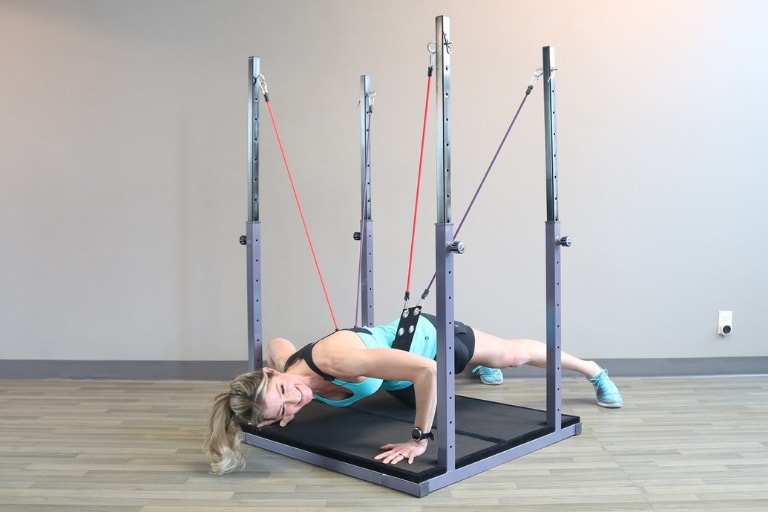
Embedded in the Evolution is an assistance mechanism which helps clients perform movements like push-ups and squats through a complete range-of-motion. This assistance has many physio applications. A set of parallel bars can also added to the frame. Parallel bars are a fundamental tool in physiotherapy, but are yet another piece of equipment to be considered and present their own challenges. The Evolution takes care of this.
All of this utility in just a fraction of the footprint (and weight) of a cable machine. The Evolution is just 9 square feet.
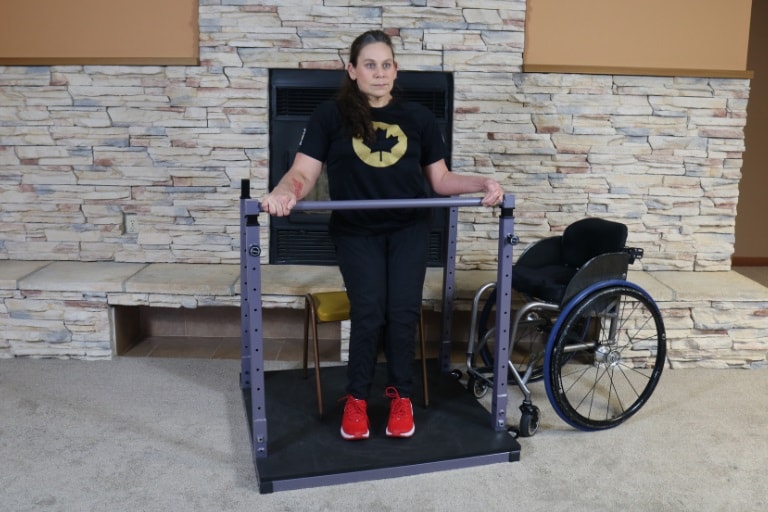
An important element not talked about enough is what happens once a client is no longer rehabbing at a facility - what does the transition home look like?
Imagine a scenario where they can work with and get comfortable on a piece of equipment that they can also have at home. They would be familiar with the mechanics and the transition would be seamless. Ultimately, this is why the Evolution was designed with simplicity in mind.
To us, simple is not a flaw.
The Evolution's hidden power is within its simplicity.
We don't believe in bells and whistles just for the sake of having bells and whistles.
The result - you get a product that simply does what it's supposed to.
